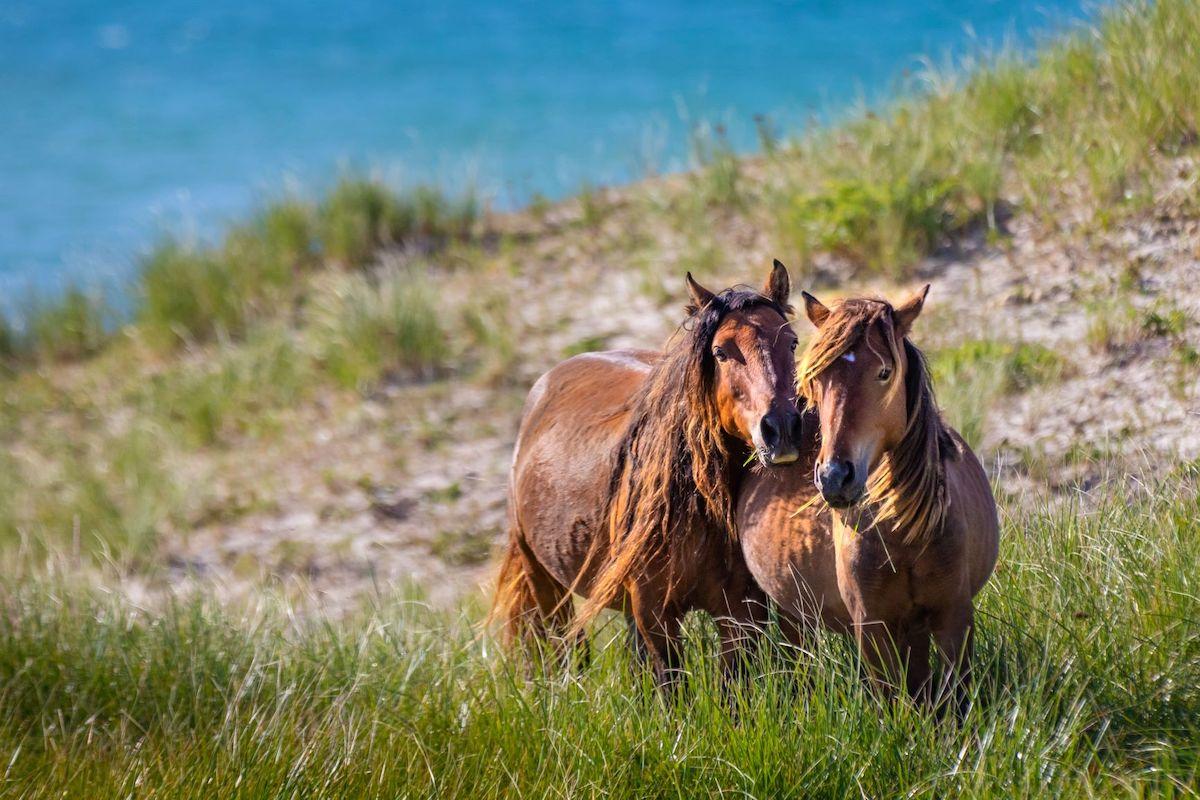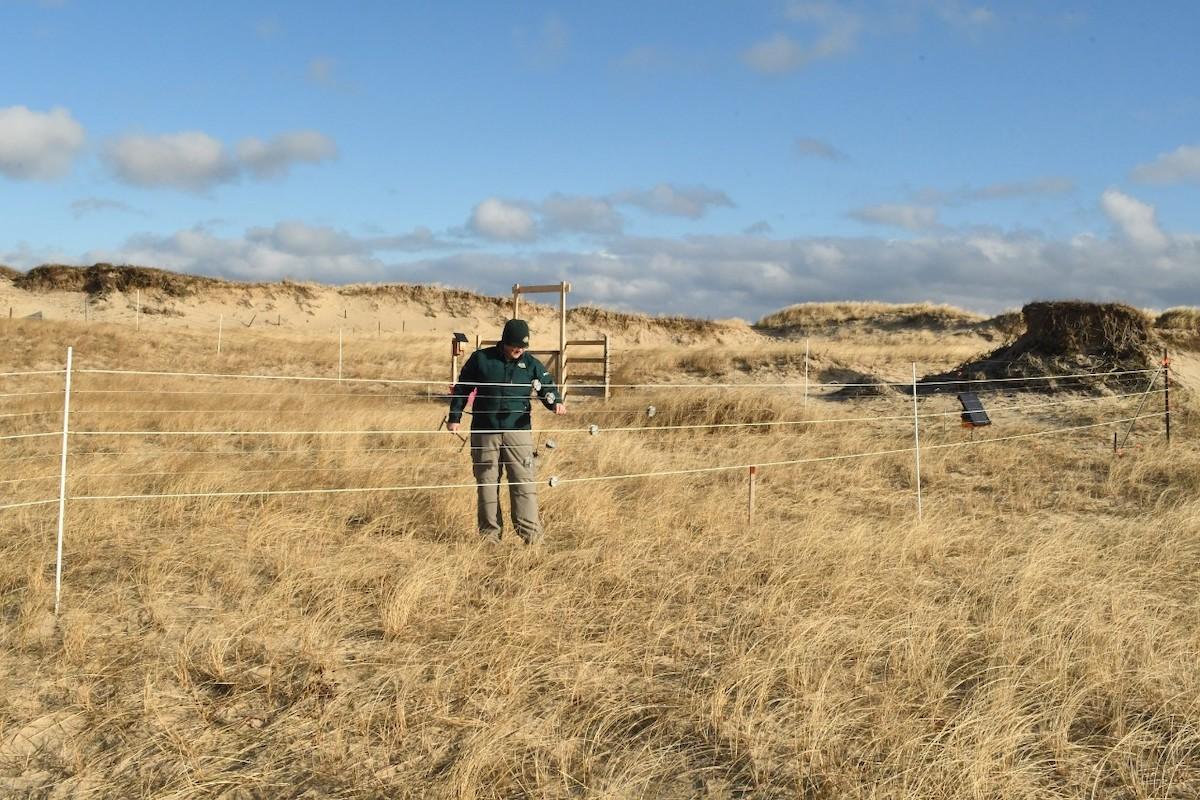
The wild horses of Sable Island National Park Reserve/Adam Cornick
The Canadian government has announced $682,000 ($531,000 USD) for a five-year project to protect Sable Island National Park Reserve’s important habitats and better understand the influence of the wild horses on its dynamic ecosystems.
The park reserve is an island of dynamic rolling sand dunes off the coast of Nova Scotia and is famously home to a wild horse population, the world's largest breeding colony of grey seals, and other unique species, like the Sable Island sweat bee, that are found nowhere else on earth.
The island's fascinating ecology includes wild horses, seals, more than 300 hundred species of birds, the only known breeding location in the world for the Ipswich sparrow, and species of moths and other insects found nowhere else on the planet. A vibrant plant community, including some that have rare distribution elsewhere, grow on the rolling and dynamic dunes that make up one of the largest dune systems in Eastern Canada.
"Nature is central to Canada's culture, prosperity and way of life. Sable Island National Park Reserve is known for its wild horses, rich history and unique biodiversity,” said Andy Fillmore in a news release. He’s the parliamentary secretary to the Minister of Infrastructure and Communities and Member of Parliament for Halifax and announced the funding on behalf of Jonathan Wilkinson, Minister of Environment and Climate Change and Minister responsible for Parks Canada.
With this funding, Parks Canada and the Sable Island Institute will launch a collaborative study called Fences in the Sand. A series of small fenced areas will be installed to exclude horses from selected sites on the island to help provide new knowledge about the island.

A Parks Canada team member installs a new trial enclosure fence on Sable Island National Parks Reserve/Parks Canada
The project team will install nine fenced enclosures, each one hectare (about 2.5 acres) in size. Scientists will collect and analyze data to understand direct and/or indirect influences of horses on the dune processes (like erosion), ecological integrity of freshwater ponds (including rare plants, water quality and invertebrates), and rare species and their habitats (including Roseate terns, Ipswich Sparrows and rare or endemic insects).
Funded through Parks Canada's Conservation and Restoration Program, the project will also support the development of interpretative material designed for virtual visitors.
Over five years, Parks Canada and the institute will have implemented critical steps to build the understanding of this site so that all elements of the ecosystem, including the horses, can be effectively protected. These efforts will better inform the long-term management of the park reserve’s natural and cultural heritage, while monitoring and implementing measures for protection in support of conservation.
Sable Island National Park Reserve was established in 2013 as Canada's 43rd national park on one of Canada's furthest offshore islands. Located in the Atlantic Ocean, the island has a rich human history stretching back to the 1500s, including shipwrecks, life-saving stations and more than 100 years of weather monitoring.
The Sable Island Institute will lead the data collection, data analysis, project coordination and liaison with researchers from academia and beyond.
Parks Canada is among the few national parks systems in the world that has a system-wide ecological integrity monitoring and reporting program, consisting of more than 700 scientific measures that inform park-specific priorities and guide restoration action.



Add comment